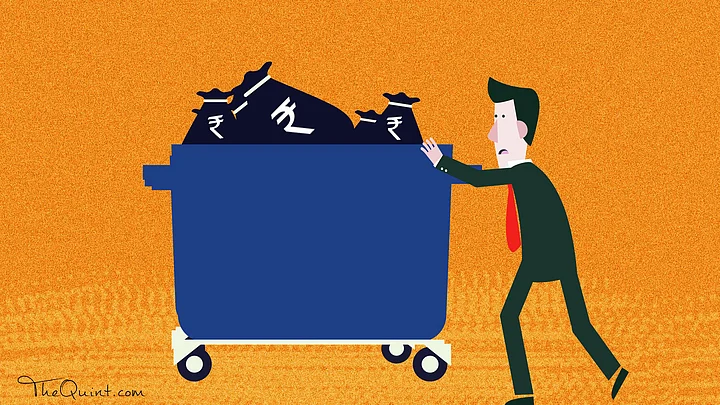It is no secret that in the pre-Goods and Services Tax (GST) era, the Small and Medium Enterprise (SME) sector in particular had taken refuge in a multitude of practices to minimise tax outflow.
SMEs understated their profits or operated in a “one business-multiple firm” model to ensure the firm does not breach the tax threshold. The SMEs were known for indulging in cash transactions to contain the turnover below Rs 1.5 crore and save excise duty. Moreover, the sector has justified these practices as its only resort to operate at sustainable margins and remain competitive.
GST: ‘Business par vaar’
However, with the advent of GST, the SMEs are now forced to operate in a certain manner, which the sector fears will eventually impact its business sustainability and growth.
The SMEs have gone on record to call GST “Business par vaar”, as they go on to explain that GST compliance will be over and above the broader regulatory framework, which includes labour and pollution control among other operational checks.
Moreover, the sector faces lack of clarity related to Input Tax Credit and transfer of liability if a particular supplier fails to comply with GST norms. The SME players also fear liquidity crunch, as GST requires to maintain a buffer of funds in the form of electronic credit ledger with the tax department.
Also Read: 100 Days of GST: Are Small, Traditional Businesses Better Off?
An Exclusive Reform, Not an Inclusive One
There is a high probability that even after the recent announcements which were aimed at easing compliance burden, GST will still overawe the SMEs in India, and eventually compel these firms to operate in the unorganised sector. This will not only defeat two key objectives of GST i.e. expansion of taxpayer base and ushering in transparency, it will prove to be an exclusive reform, than an inclusive one.
Also Watch: GST Aimed At Poll-Bound Gujarat: Yashwant Sinha to The Quint
Policymakers should consider the following recommendations in order to address key issues faced by the SME sector:
Real-Time Invoice Matching
After the recent modification, GST requires three subsequent quarterly returns. This is essentially a three-step process where:
- Filing 1: Details of outward supplies of taxable goods and/or services affected are filed
- Filing 2: Details of inward supplies of taxable goods and/or services affected claiming input tax credit are filed
- Filing 3: Quarterly return on the basis of finalisation of details of outward supplies and inward supplies along with the payment of amount of tax
These three steps should be subsumed into one through a centralised monitoring and invoice matching algorithm. This is possible by launching a common software for all Business to Business (B2B) transactions. This will facilitate real-time invoice matching.
Kiosks for Spreading Awareness
GST is technology-driven tax structure, which aims to eliminate human interface from all possible points of intervention during the course of tax filing.
This could be counterproductive and serve as a means of exclusion of the informal sector, as opposed to one of the objectives of GST i.e. maximising participation of taxpayers.
One must acknowledge that the government has kept the ball rolling, by conducting extensive outreach and training for SMEs. However, we need to accept that SMEs are primarily promoter-driven ventures, and demands of business will invariably take precedence over compliance. In the absence of a dedicated compliance team, we need to assist SMEs lock, stock and barrel, before the sector finds creative ways to circumvent the system.
Free-of-cost GST filing kiosks should be set up at strategic locations such as bank branches, mandis, utility payment centres in rural as well as urban areas. These kiosks can be run by local volunteers or empanelled NGOs. They should operate as Single Point of Filing, to ensure lack of education or access to technology is not an excuse for non-compliance.
Also Read: Attempts to Derail GST Have Failed: Finance Minister Arun Jaitley
Free Samples Should be Exempted from GST
Under the existing GST structure, input tax credit shall not be available in respect of “goods lost, stolen, destroyed, written off or disposed of by way of gift or free samples”. Free samples are distributed to customers for the purpose of promotion and advertisement. These schemes are usually a part of the overall strategy to increase market share and survive amidst competition. Moreover, the input cost incurred towards manufacturing of these free samples is included in the cost of rest of the articles.
Keeping with international standards and business requirements, free samples should be exempted from GST. Moreover, since the input cost is included in the overall cost, the government does not lose any revenue by exempting GST on free samples.
Implementation of GST, like any other policy is not a linear process, due to multiple actors and dynamic conditions which exert influence. Thus, it would be too early to pronounce any verdict on efficacy of GST.
Nevertheless, policymakers need to be cognisant of two dominant consequences – One, large players will be reluctant to engage with small and medium enterprises, as they stand to face fiduciary consequences if the SME in question is not 100 percent compliant; Two, empirical research has shown that in a high tax rate regime, taxpayers pay rent to avoid paying high taxes.
Also Read: How I Lost My Job Due to GST
(The writer is a policy analyst. She can be reached @gunjakapoor .This is a personal blog and the views expressed above are the author’s own. The Quint neither endorses nor is responsible for the same.)
(Breathe In, Breathe Out: Are you finding it tough to breathe polluted air? Join hands with FIT in partnership with #MyRightToBreathe to find a solution to pollution. Send in your suggestions to fit@thequint.com or WhatsApp @ +919999008335)
